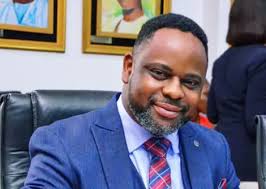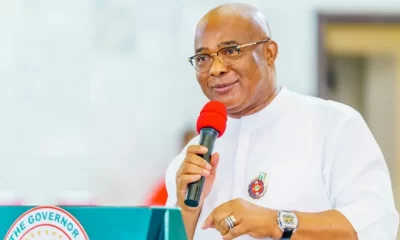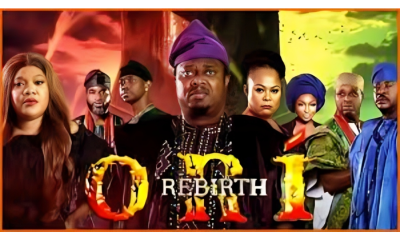FEATURES
Why no Woman Should Die From Cervical Cancer
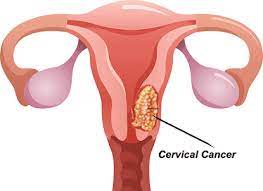
Cervical cancer is the second most common cancer affecting women in Nigeria and the fourth most common cancer among women globally, according to World Health Organisation (WHO).
Current estimates for Nigeria in 2023 by the Human Papillomavirus (HPV) Centre indicate that every year 12,075 women are diagnosed with cervical cancer and 7,968 die from the disease in the country.
About 3.
5 per cent of women in the general population are estimated to harbour cervical HPV-16/18 infection at a given time, and 66.9 per cent of invasive cervical cancers are attributed to HPVs 16 or 18.However, with proven interventions to prevent and manage the disease, experts say that no woman is expected to lose her life to cervical cancer.
Prof. Isaac Adewole, a former Minister of Health, Nigeria and Co-Founder, African Cancer Coalition, told in Lagos that cervical cancer had become a public health issue.
Nevertheless, Adewole, a professor at the University of Ibadan and Northwestern University, said the disease which was caused almost entirely by a virus, could be tackled.
He said cervical cancer was preventable and treatable, if presented and diagnosed early.
He said part of the strategies to eliminate cervical cancer included, vaccination of about 90 per cent of girls between ages nine and 14 with HPV vaccine to prevent them from having the cancer.
According to him, it takes about an average of 20 to 30 years for cervical cancer to develop, and the HPV vaccination offers a window of opportunity to kick against the cancer.
He said screening of no fewer than 70 per cent of women using a high-performance test by the age of 35, and again by the age of 45, was also a strategy to save women from cervical cancer.
“When we screen women who are asymptomatic, we have no complaints at all.
“When we screen them, we’ll be able to determine and diagnose stages that occur before development of cancer. We call these stages pre-malignant stages.
“We are able to detect them and when we offer appropriate treatment they will be cured,” said Adewole.
A third way of addressing the cervical cancer menace, according to Adewole, is prompt and appropriate treatment when detected early.
“Even those who develop cervical cancer, when we pick them in the early stages, we can almost uniformly cure them.
“Treatment of women with early presentation as well as invasive cancer management helps.
“When you look at the three factors of prevention, screening, which is secondary prevention; and treatments of early stages, we have a disease on our hands that applying public health principles, we can control,” explained the professor.
Adewole advocated allocation of resources for cancer prevention, detection, treatment and management.
“Cervical cancer disease is common in areas that are not developed or areas where they have not allocated appropriate resources and attention to this disease.
“It is a disease of under development.
“And where you have infrastructure well developed, where you have appropriate policies that are well-resourced, where you have leadership showing interest in this disease, we collectively can eliminate cervical cancer.
“And this has been amply demonstrated through projections scientifically showing that if you do this, then cervical cancer can become something of history,” said Adewole.
According to him, the challenge in Nigeria, just like in Africa and many developing countries, is that a lot of people are largely unaware of the situation with cervical cancer.
Therefore, he said when cases were presented to the hospitals, they were largely in advanced stage, for quite a number of reasons.
The former health minister also noted that the non-availability and affordability of vaccine hindered efforts in the drive to eliminate cervical cancer in Nigeria.
“It is very expensive if you go to the shelf to buy it and then, globally, the developed countries have ‘cornered’ the vaccine for their people because they recognise the value of the vaccine.
“So, we are left at the mercy of Gavi, the Vaccine Alliance (GAVI) and multilateral donors to fund us.
“The prices are coming down gradually but it is still out of reach for most groups.
“But, there is a window or door of opportunity for many as countries that were previously giving two or three shots can now give one and that will free some of the supplies,” continued Adewole.
He said by adopting, introducing and implementing the Global Elimination Agenda for Cervical Cancer Control https://www.cervicalcancerdeclaration.org/, eliminating cervical cancer as a public health issue would be realised.
“Hence, we call for urgent action to make cervical cancer elimination a global priority, with high-level commitment and resources to make it a reality.
“No woman should lose her life to cervical cancer when we have the tools to prevent, and, especially when diagnosed early, to treat it,” he said.
HPV is mainly transmitted through sexual contact and most people are infected with HPV shortly after the onset of sexual activity.
Twelve leading health experts from around the world have initiated a call to action in the fight against cervical cancer through The Global Declaration to Eliminate Cervical Cancer.
The Declaration was formally launched at the World Health Assembly in Geneva on May 22, with signatures from more than 1,200 global health leaders and advocates representing no fewer than 100 countries.
Top among them included former Prime Minister of New Zealand, Jacinda Ardern, CEO of Amref Health Africa, Githinji Gitahi; President of the International Federation of Obstetrics and Gynecology (FIGO), Jeanne Conry, and President-elect of the International Pediatric Association, Naveen Thacker.
Adewole and Prof. Margaret Stanley of Cambridge University, UK and Past President of the International Papillomavirus Society (IPVS), are among the experts championing the declaration.
Stanley told NAN that it was worrisome that 90 per cent of women with cervical cancer lived in low and middle income countries.
According to her, in high income countries like U.S., UK, Europe, there are highly organised medical services which women can access easily.
She added that same services should be replicated in low income countries like Nigeria.
Stanley also agreed that no woman should die from cervical cancer as eliminating the disease was achievable with urgent action in three areas – vaccination, screening and treatment.
“Vaccinating girls aged nine to 14 against HPV is the primary way to prevent cervical cancer.
“HPV vaccines are safe, effective, and can prevent up to 90 per cent of cervical cancer cases.
“Cervical cancer can also be prevented through screening and treatment of pre-cancerous lesions,” said Stanley.
She also recommended the ‘new’ one-dose HPV vaccination regime as part of routine programmes for girls.
The British virologist and epithelial biologist also called for provision of X rays for screening for cervical cancer, while advocating increased access to adequate health facilities and trained health personnel.
According to experts, tools are available to eliminate cervical cancer and everything must be engaged collectively to eliminate the disease and save women from losing their lives to cervical cancer. (NANFeatures)
FEATURES
What Future For Catholics Under Pope Leo XIV?
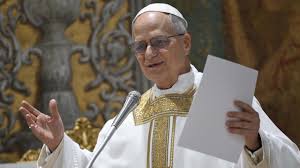
In unprecedented and emotionally resonant moments for the global Catholic community, Cardinal Robert Prevost of Chicago was elected Pope on May 8 and inaugurated on May 18.
He became Pope Leo XIV, the 267th successor to St. Peter and the first American-born pontiff in the history of the Roman Catholic Church.
The election of Leo XIV follows the death of Pope Francis on April 21, a pontiff celebrated as “the people’s pope.
”Leo XIV’s inauguration message resonated with advocacy for peace and harmony in a troubled world.
The pontiff said he wanted the Catholic Church to be a “small leaven of unity” in a time of “too much discord and too many wounds”.
Leo harped on the need to preserve the church’s rich heritage while confronting modern challenges.
“In this time of ours, we still see too much discord, too many wounds caused by hatred, violence, prejudice, the fear of difference, and an economic paradigm that exploits the earth’s resources and marginalises the poorest.
“For our part, we want to be a small leaven of unity, communion and fraternity within the world; we want to say to the world, with humility and joy; look to Christ; come closer to him,” he said.
Born on Sept. 14, 1955 in Chicago, Leo XIV was raised in a culturally rich American city and studied mathematics at Villanova University.
He pursued his priestly formation at the Catholic Theological Union in Chicago before obtaining a doctorate in Canon Law from the Pontifical College of St. Thomas Aquinas in Rome.
It was not his academic accolades but the 14 years he spent as a missionary in Peru that most deeply shaped his pastoral identity.
There, in one of South America’s poorest regions, he worked closely with the marginalised, gaining firsthand insight into social injustice, poverty, and spiritual hunger.
This lived experience grounded his commitment to the poor, informed his theology of proximity, and laid the foundation for a papacy rooted in social justice, humility, and global outreach.
Leo XIV’s choice of name is more than ceremonial; it is a carefully calibrated message.
His name honours two great figures in Church history: St. Leo the Great, a fifth-century pope renowned for his doctrinal clarity and steadfast defense of Rome during political and theological turmoil.
It also honours Pope Leo XIII, whose groundbreaking 1891 encyclical Rerum Novarum addressed the plight of workers during the industrial age and laid the foundation for modern Catholic social teaching.
Prof. Brandon Gallaher of the University of Exeter, UK, likened Leo XIV to Francis, whose legacy of inclusivity, environmental stewardship, and concern for the Global South continues to inspire.
“Many analysts believe Leo XIV was chosen as a ‘continuity candidate,’ meant to solidify and institutionalise Francis’s reforms.
“Leo XIV is very much a ‘Francis-like’ pontiff.
“He shares Francis’s concern for the peripheries and the poor, but he also brings a more canonically grounded and disciplined approach to Church governance,” he said.
According to Dr Gonzalo Berenguer, a historian from the University of Bristol, his name, background, and tone all signal a commitment to build on, not reverse, Francis’s revolution in Church life.
Catholic scholars say Leo XIV assumes the papal reins at a moment of significant turbulence for both the Church and the world.
They listed some of the church’s pressing challenges as: Internal Reform and Transparency; ongoing fallout from clergy abuse scandals has damaged the Church’s moral authority; strengthening accountability will be a key focus.
“Social Justice: Poverty, migration, and economic disparity remain core global issues; Leo XIV’s Peruvian experience positions him to speak credibly on these matters.
“Climate Change and Environment: Continuing the legacy of Laudato Si’, Leo XIV is expected to advocate forcefully for ecological stewardship.
“Inclusivity and Youth Engagement: The new pontiff has expressed interest in creating space for women, youth, and marginalised voices within Church structures and discussions.
“Global Engagement: As digital communication reshapes culture, Leo XIV must navigate a path that keeps Catholic teaching relevant and accessible without compromising doctrine.”
The Christian Association of Nigeria (CAN) described Leo XIV’s election as “a milestone of hope and renewal”.
President Bola Tinubu, who attended Leo XIV’s inauguration, lauded the pope’s global perspective and experience with Nigeria’s Augustinian communities, calling Leo XIV’s elevation “a new chapter for Church-African cooperation.”
UN Secretary-General António Guterres hailed Leo XIV as a voice for unity and peace.
“At a time of geopolitical division and deep societal fractures, Leo XIV brings a message the world needs to hear,” he said.
Mr Peter Obi, former Anambra Governor and Labour Party Presidential candidate in 2023, who also attended the inauguration, called the new pope “a respected canon lawyer and seasoned missionary,” highlighting his role as Prefect of the Dicastery for Bishops before becoming pontiff.
Analysts say Leo XIV’s duality of identity is more than symbolic as it informs his leadership style– humble, yet decisive, and his theology–rooted in Gospel fidelity but open to dialogue with the modern world.
Before the conclave, Leo XIV gained attention for his measured but clear social media presence, including posts critical of political leaders he believed misrepresented Christian teaching.
From Rome to Rio, Lagos to Abuja and Los Angeles, Catholics are watching closely; will Leo XIV be the builder of bridges?; the reformer with legal acumen?; the lion-hearted shepherd the Church needs?
The Tinubu Media Support Group (TMSG) described the personal invitation by Leo XIV to Tinubu to attend his inauguration as a reflection of Nigeria’s great stature in the comity of nations.
Mr Emeka Nwankpa, Chairman of TMSG, said that Tinubu was the first Nigerian president in recent memory to attend a papal inauguration.
“When the Presidency announced that Tinubu would attend the inauguration of Leo XIV, it mentioned that the papal invitation by Vatican Secretary of State Cardinal Pietro Parolin underscored the need for the President’s physical presence.
“For us, it represents the importance the Vatican accords the President and the country, especially as the inauguration ceremony was Pope Leo’s first interaction with world leaders.
“Indeed, the Pope had brief interactions with all international leaders in attendance, including Tinubu, U.S. Vice President J.D. Vance, and President Volodymyr Zelensky of Ukraine.”
According to Nwankpa, Tinubu’s presence at the Pope’s inauguration marks the first time in 20 years that a Nigerian leader attended a papal inauguration.
“In 2005, when Pope Benedict XVI was inaugurated, there is no record showing then-President Olusegun Obasanjo attended, though Nigeria had a delegation.
“When Pope Francis was inaugurated in March 2013, the Nigerian delegation was headed by then Senate President David Mark, who delivered former President Goodluck Jonathan’s congratulatory letter to the Pope.
“But Tinubu, a Muslim, not only accepted the papal invitation but attended and told newsmen his presence was consistent with achieving unity in diversity.”
The group said it was reassuring, especially as some Nigerian Christians had expressed reservations about peaceful coexistence and religious harmony following the President’s Muslim-Muslim ticket in the 2023 election.
“We note that during Tinubu’s meeting with members of the Catholic Bishops’ Conference of Nigeria, he reaffirmed his commitment to using ‘our diversity, not for adversity but for prosperity,” Nwankpa said.
He expressed hope that many more Nigerians would appreciate the President as a fair-minded leader, contrary to pre-election impressions promoted by the opposition.
Catholic pundits and critical observers say Leo XIV has become a symbol of hope and unity; but for many, the central question remains: What future lies ahead for Catholics under this historic American pontiff? (NAN)
FEATURES
Rise In Male Hair Braiding: Fashion or decline in African values?

In recent years, the landscape of men’s fashion and grooming in Nigeria has seen a notable shift, with hair braiding emerging as a significant trend among young men.
Once seen as a style reserved for women, braided hairstyles are now redefining masculinity on the streets of Nigeria.
The practice has now evolved into a form of cultural expression, artistry, and personal identity for Nigerian males.
This growing trend is not just about fashion; it challenges cultural stereotypes, sparks conversations about gender norms, and signals a broader shift in how young Nigerian men see themselves and their identities.
Speaking on the trend, contributors appraised several factors contributing to the drift among young men in Nigeria society.
Mr Chinemerem Ndinojue, a youth and fashion enthusiast, described hair as a deep personal expression of identity.
“To me, hair is an extension of one’s personality; in African history, braids were more than fashion — they were symbols of resistance, identity, and even communication during the era of slavery.”
Ndinojue argued that, modern youths, particularly the Gen Z, use braids and other hairstyles to reflect creativity and stand out in industries like fashion and entertainment.
“Many of us are into music, design, content creation and our appearance is part of the brand; our parents rocked Afros in their time.
“It is the same expression in a different era; you cannot judge a person’s morality by their hairstyle,” he said.
However, Mr Michael Samson, a civil servant, sees the trend differently, describing it as a departure from African tradition and an influence of misguided westernisation.
“Our traditions have been replaced by modern civilisation; most of these boys are not celebrities; yet, they spend thousands on hair that serves no purpose.
“Worse still, some use these looks to cover fraudulent activities.’’
He cited an incident at a bank where a teenager, allegedly involved in internet fraud, claimed to have earned in a month what an older man earned in a lifetime.
“Such wealth without value is what leads to this arrogance; many use these styles to gain attention, not out of professionalism,” he said.
Echoing similar sentiments, Mrs Blessing John, another civil servant, said male hair braiding undermines cultural and moral standards.
“For me, it is not encouraging; we are Africans with strong cultural values; in our tradition, men do not braid their hair; even in professional spaces namely medicine, law, engineering, you do not see such hairstyles; there is a reason for that.”
She warned that many young men who braid their hair may be involved in societal ills such as drug abuse and cultism.
“We need value reorientation; parents must go back to teaching their children the right path; we must not forget where we come from,” she said.
Meanwhile, Mrs Ijeoma Azubuike-Okigbo, a communications professional, offered a more nuanced view.
While she admitted personal reservations about male braiding, she acknowledged the growing influence of pop culture.
“Young people today look up to personalities like VeryDarkMan among others who braid their hair and still command respect.
“If the society begins to accept it widely, it might one day become a part of our evolving culture.”
She said that many parents even took their young male children to salons for braids, suggesting the trend was already gaining ground across families.
“Ultimately, hair is natural; how one chooses to style it is personal; society is changing, and this may be part of that evolution,” she said.
Mr Toks Adesanya, a community elder, expressed strong disapproval over the rising trend of hair braiding and dreadlocks among young Nigerian males, describing the practice as a “taboo” and a deviation from cultural norms.
Adesanya lamented what he referred to as the erosion of African values and the shift in traditional masculinity.
He argued that hair braiding in men was not only alien to the culture but also reflective of a larger societal breakdown.
“It is a taboo for a man to braid his hair; when I see a boy or a man doing such things, I consider it a disgrace and a deviation from our tradition.
“Such hairstyles are not only culturally inappropriate but also expose young men to unnecessary suspicion by law enforcement.
“Thank God, the Special Anti-Robbery Squad of the Nigeria Police is no longer around; many young men would have fallen victim because such looks make them easy targets; police often associate such appearance with cybercrime or cultism.’’
Adesanya recalled a personal experience from his youth, when he briefly curled his hair to attend a party, only to be severely reprimanded by a family member.
“I felt accepted at the party, but when I got home, someone close to the family expressed deep disappointment; she said I had disgraced manhood; I felt ashamed and removed the curls the next day.”
He also attributed the trend to poor parenting, environmental influence, and a lack of religious and societal guidance.
“Our society no longer checks excesses; parents are absent, churches and mosques are silent, and this silence is taken as approval.
“Even in job interviews, appearances matter; a man with braids or dreadlocks may not be taken seriously if he should appear in such manner for job interviews,” he said.
Recently, Gov. Umar Bago of Niger banned wearing of dreadlocks among other things due to the rise of insecurity in the state.
Bago ordered security agents to clamp down on thugs and those abetting them in disrupting public peace in Minna, the state capital where violence had become a daily occurrence.
He also directed the arrest of people wearing dreadlocks, following a series of calls by terrorised residents of Minna to curb the worsening thuggery that had claimed the lives of many innocent people.
The governor said that thugs had turned the streets of Minna into a battleground since he took over leadership of the state.
As the debate continues, the question remains, is male hair braiding in Nigeria a fading of traditional values or an embrace of modern self-expression? (NANFeatures)
FEATURES
Miss Valdeen N. Pierre Honored with Humanitarian Award at the 2025 National Humanitarian Summit
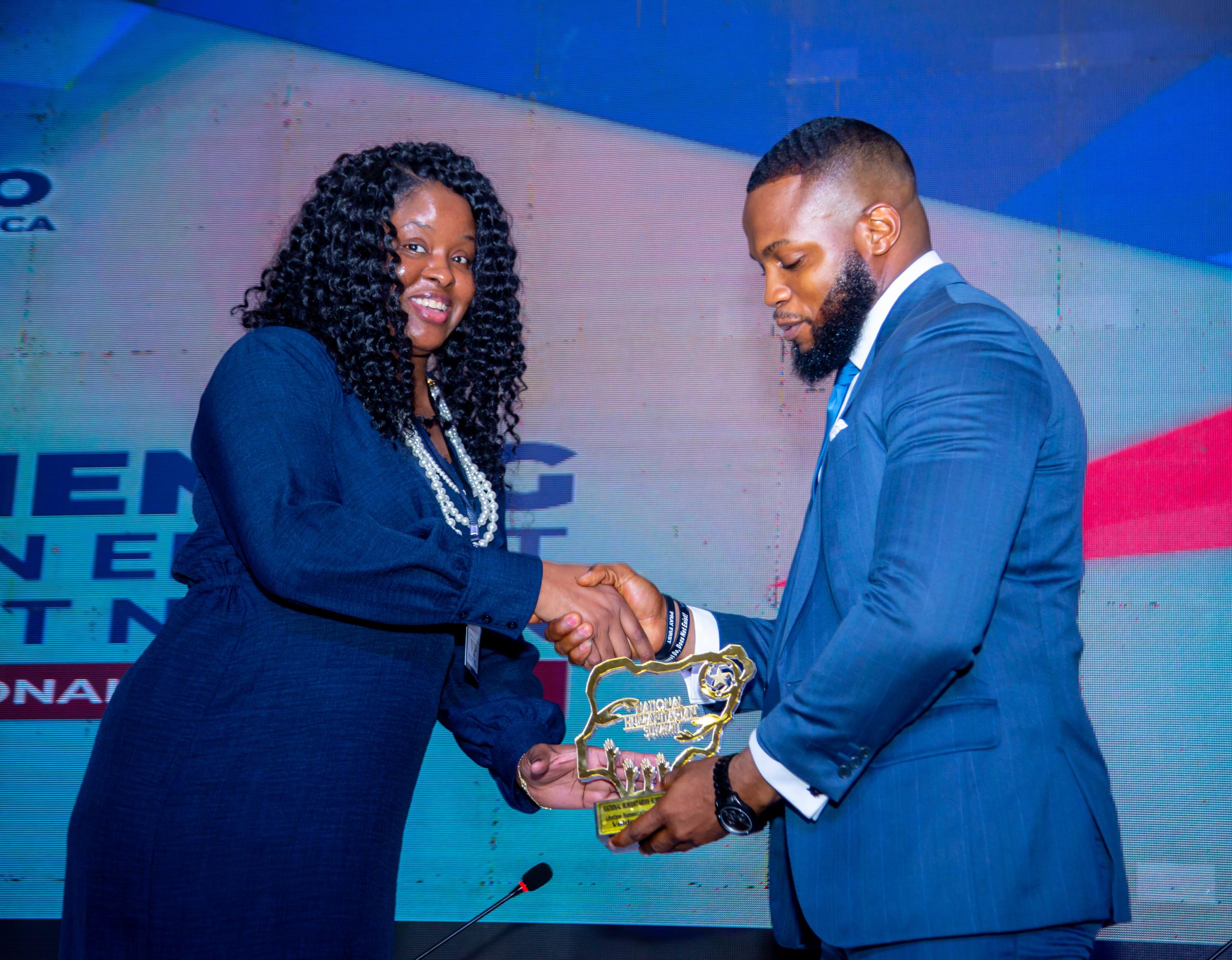
In a remarkable celebration of humanitarian service and strategic collaboration, Miss Valdeen Pierre , Country Director – United State ; A New Thing International foundation ; was honored with the Humanitarian Award at the prestigious National Humanitarian Summit 2025, held at the Shehu Musa Yar’Adua Centre, Abuja.
The award recognizes Miss Pierre’s and other humanitarian leaders unwavering commitment to humanitarian causes, particularly her collaboration with A New Thing International Foundation on the SOBE Project (School Outreach for Better Education) across Sokoto, Kebbi, Plateau, Niger States and the FCT.
Her efforts have significantly contributed to improving access to quality education and raising awareness about social vices among schoolchildren in underserved regions.The summit drew an esteemed audience comprising multiple stakeholders across the humanitarian value chain, including the Minister of Youth Development, Minister of Humanitarian Affairs, Special Assistant to the President on Humanitarian Affairs, the First Lady of Kwara State, First Lady of Zamfara State, representatives of United Nations Humanitarian Agencies, NGOs, INGOs, and other key players in the humanitarian sector.
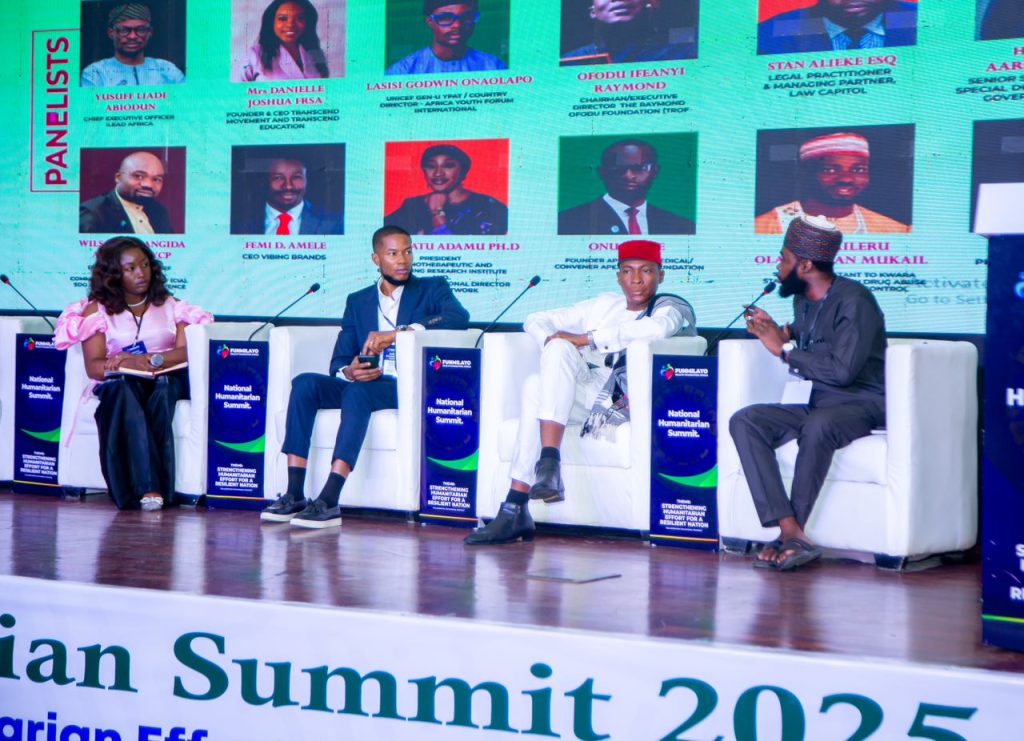
The event featured a vibrant mix of panel discussions, keynote addresses, and the unveiling of strategic development plans aimed at strengthening collaborative impact across Nigeria and beyond.
In his vote of thanks, Ambassador Kenneth Anetor, the Executive Director of A New Thing International Foundation and Chairman of the Planning Committee, delivered a passionate closing speech. He commended the honorees and stakeholders, issuing a clarion call for deeper collaboration and renewed commitment to advancing strategic organizational development goals. His rousing remarks inspired attendees to rise to the moment and forge stronger partnerships for sustainable impact.
Ambassador Anetor also extended profound appreciation to the summit’s convener, Ambassador Michael Timothy, of the Funmilayo Health Foundation Africa, for the opportunity to serve as Chairman of the Planning Committee, and for creating a platform that celebrates excellence in service and drives transformative conversations in humanitarian work.
The National Humanitarian Summit 2025 stands as a milestone in Nigeria’s journey toward inclusive, people-centered development, with Miss Valdeen Pierre’s recognition serving as a beacon of hope and an example of the power of global partnership in humanitarian efforts.
For media inquiries , information, or donations please contact:
Email: anewthingworldwide@gmail.com
Phone: +2347037474611
Website: www.antworldwide@gmail.com








